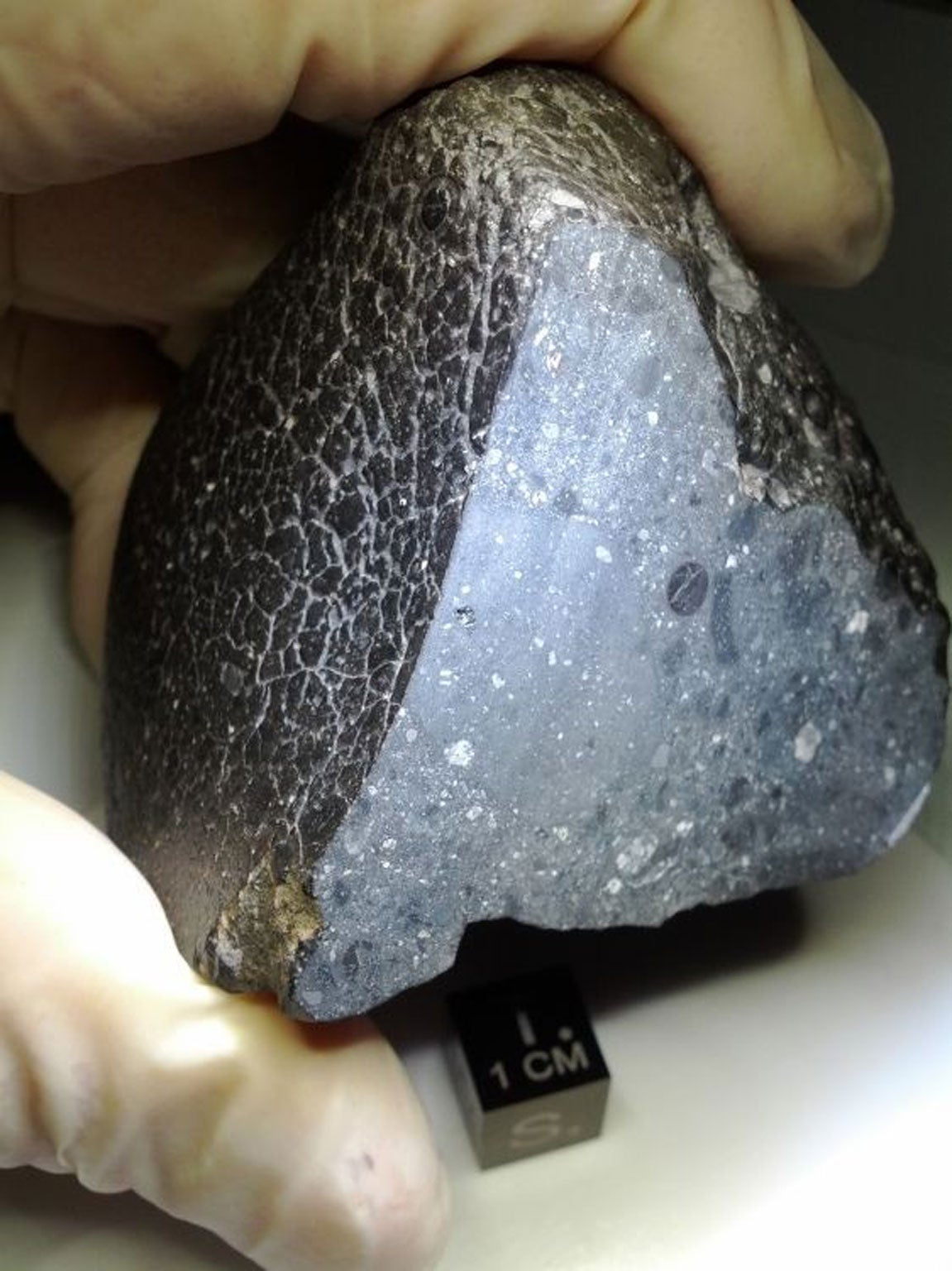Black Beauty rock is ‘oldest chunk of Mars’ ever found on earth, scientists say
New research shows distinctive rock is more than twice as old as previously thought – and could expose signs of ancient Martian life

A meteorite discovered in the Sahara desert has been identified as the oldest piece of the planet Mars ever found on Earth, scientists said.
The so-called “Black Beauty” rock was named for its unusual dark and glossy appearance, and has been the subject of extensive scientific analysis.
Once believed to be about two billion years old, new tests indicate the meteorite – whose official name is NWA (North West Africa) 7553 – is more than twice that age, dating from 4.4 billion years ago.
That places it at a time when the Red Planet’s crust was in its earliest stages of formation, and tells us a great deal about “one of the most important epochs in the history of Mars”, lead scientist Prof Munir Humayan said.
His research, based at Florida State University and published in the journal Nature, found that parts of the meteorite came from different points in the development of Mars, explaining why the earlier dating of a fragment was wrong.
There are only around 100 Martian meteorites in collections around the world, according to BBC News, but almost all of them are much younger than Black Beauty – dating from around 150 to 600 million years ago.
Scientists were able to analyse the different minerals encased in the 7553 fragment – one of five found in the desert – and said it showed the volatile nature of Mars’ surface.
“It contains zircons for which we measured an age of 4,428 ± 25 million years, which were later disturbed 1,712 ± 85 million years ago,” Prof Humayan wrote.
He explained: “The crust of Mars must have differentiated really quickly, rather than gradually over time. There was a big volcanic episode all over the surface, which then crusted up, and after that the volcanism dropped dramatically.
“When it did this it also must have out-gassed water, carbon dioxide, nitrogen and other gases to produce a primordial atmosphere... and also a primordial ocean.”
He added: “This is a very exciting period of time - if there were to be life on Mars, it would have originated at this particular time.”
Scientists will now conduct a study to test the different meteorite fragments for signs that they ever came into contact with life. They were nonetheless cautious about the results – saying researchers would have to bear in mind the fact that organisms almost certainly inhabited some of the rock during its time in the desert.
Subscribe to Independent Premium to bookmark this article
Want to bookmark your favourite articles and stories to read or reference later? Start your Independent Premium subscription today.

Join our commenting forum
Join thought-provoking conversations, follow other Independent readers and see their replies